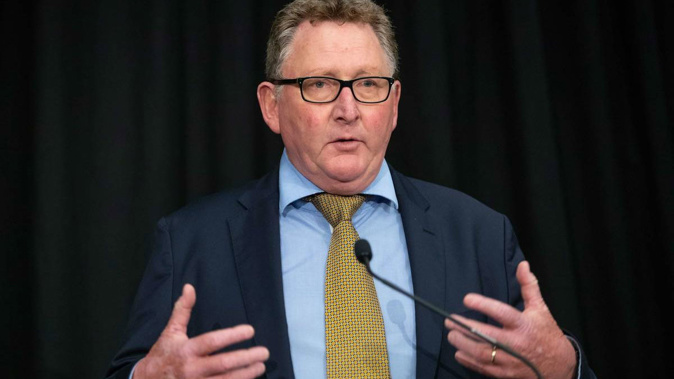
Reserve Bank Governor Adrian Orr has lifted the official cash rate (OCR) by 50 basis points, to 4.75 per cent, despite billions of damage the economy faces after Cyclone Gabrielle.
The Reserve Bank still sees the official cash rate peaking at 5.5 per cent despite the devastation from Cyclone Gabrielle.
The Monetary Policy Committee agreed that the OCR still needs to increase, as indicated in the November Statement, to ensure inflation returns to within its target range over the medium term.
It was too soon to accurately assess the monetary policy implications of Cyclone Gabrielle, they said.
“All else being equal, these severe storms will keep CPI inflation high for longer and may lead to a longer period with inflation above 7 per cent,” the committee said.
“The best contribution monetary policy can make is to free up resources by slowing demand elsewhere in the economy with higher interest rates. This will also limit further increases in the cost of living over the medium term.
“It is too early to accurately assess the monetary policy implications of these weather events, given that the scale of destruction and economic disruption are only now becoming evident. The timing, size, and the nature of funding the Government’s fiscal response are also yet to be determined.”
Over coming weeks, prices for some goods are likely to spike and activity will be weaker than previously expected, they said.
“Export revenues will be negatively impacted. Monetary policy is set with a medium-term focus, and the Committee will look through these short-term output variations and direct price effects.
“In time, the infrastructure and community rebuild will add to activity and inflationary pressures, especially given existing capacity constraints in the economy.”
The New Zealand dollar rose about a third of a cent against the USD after the announcement - to US62.33c. In wholesale interest rates, the two-year swap rate was little-changed at 5.31 per cent.
The Committee discussed the size of the OCR increase. Increases of 50 and 75 basis points were considered.
The Committee assessed that, while the balance of risks around inflation remained skewed to the upside, the extent of this risk had moderated somewhat since the November Statement.
As a result, a 50 basis point move balanced the need to ensure core inflation and inflation expectations fall, against the early signs that demand was beginning to moderate towards the economy’s productive capacity.
EARLIER
With the economy facing a major new challenge, Orr faces a tough task communicating the Reserve Bank’s monetary policy strategy.
Given the current high inflation environment, the central bank faces a difficult choice, ANZ economist Finn Robinson said.
“Continuing to aggressively hike rates to counter high inflation will further impact people who are really struggling right now,” he added.
“If they go easy on inflation and let inflation pressures reaccelerate, then they could end up causing even more interest rate pain later as they struggle to get back on the front foot in the fight against inflation.”
Early estimates have the total cyclone damage bill running to around $13 billion but that includes costs covered by insurance.
Currently, at 7.2 per cent, inflation was below the RBNZ forecast of 7.5 per cent and the balance of risks was tilted to the downside.
Gisborne and Hawke’s Bay, both badly affected in the cyclone, account for about 3.5 per cent of GDP between them, ASB chief economist Nick Tuffley said.
“Although the weather disasters are devastating to those directly affected, a confidence knock to activity looks much less likely. And the starting point for inflation is one of red-hot pressure,” Tuffley said.
Take your Radio, Podcasts and Music with you









